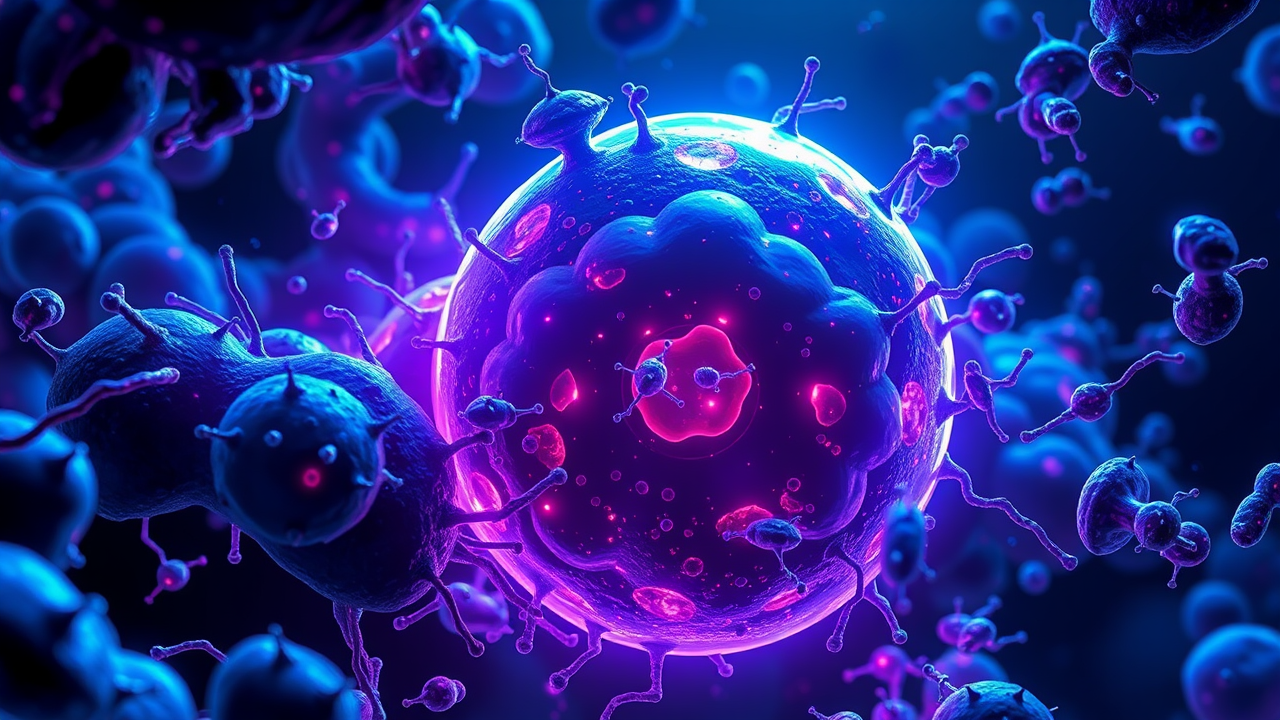Bacteria hidden inside tumors could help beat cancer
In a discovery that feels ripped from the pages of a near-future medical thriller, scientists are turning the very concept of cancer against itself by weaponizing the microscopic world within tumors. The revelation that certain bacteria, living symbiotically inside colorectal cancer cells, can produce a potent anti-cancer molecule called 2-methylisocitrate (2-MiCit) is not just an incremental step; it's a paradigm shift in our understanding of the tumor microenvironment.Think of it as a Trojan horse strategy at a cellular level, where a hidden ally is already behind enemy lines, waiting for the signal to attack. The mechanism is as elegant as it is devastating to cancer: 2-MiCit launches a two-pronged assault, directly damaging the cancer cell's DNA while simultaneously sabotaging its metabolic machinery, the very engine that drives its uncontrolled growth.This dual-action approach is crucial because it makes the cancer cells profoundly more vulnerable to traditional chemotherapy, effectively softening them up for the final blow. The research, validated across a spectrum of biological models—from the humble worm and fruit fly to human cancer cell lines—demonstrates a potent, consistent effect that has the entire oncology community buzzing with a cautious, yet palpable, excitement.This isn't merely about adding another drug to the arsenal; it's about re-engineering the entire battlefield. The implications cascade through the future of personalized medicine.Imagine a diagnostic protocol where a tumor biopsy is not only analyzed for its genetic markers but also for its unique microbial inhabitants, its 'oncobiome. ' Treatment could then be tailored not just to the patient's genetics, but to the specific bacterial strains residing in their tumor, potentially involving probiotics or engineered bacterial vectors designed to deliver these therapeutic molecules with pinpoint accuracy.This approach dovetails with the burgeoning field of synthetic biology, where we are learning to program living organisms to perform complex tasks, in this case, turning a passive resident into an active combatant. Of course, the path from the petri dish to the pharmacy is long and fraught with challenges.The delicate balance of the human microbiome is a complex ecosystem, and introducing or encouraging specific bacteria carries risks of unintended consequences and immune reactions. Yet, the potential to create a new class of 'bio-assisted' therapies, where our own microscopic allies amplify the effects of our best drugs, offers a compelling vision.It reframes the fight against cancer from a scorched-earth campaign of poisoning and radiation to a more sophisticated, intelligence-driven operation, leveraging the hidden biology of the tumor itself to secure a victory. This is the next-gen science we've been waiting for—a fusion of microbiology, oncology, and bio-engineering that promises to rewrite the rules of engagement in our long war against cancer.
Latest News
In a development that feels as monumental as the first time humanity grasped the orbital mechanics that would one day take us to Mars, a cadre of international
5 hours ago0 comments
In the grand, unfolding narrative of Africa's energy future, a quiet but profound struggle is taking place, one that pits the seductive allure of quick-fix
6 hours ago3 comments
The persistent longevity gap between the sexes, a phenomenon observed not just in our own species but across a remarkable spectrum of mammalian life, from the
8 hours ago3 comments
The skies above Hong Kong performed a spectacular act of atmospheric theater earlier this month, presenting residents of Tsing Yi with a vision so ethereal it
13 hours ago5 comments
In a landmark study emerging from Spain, a nuanced and more intelligent iteration of the celebrated Mediterranean diet has demonstrated a staggering 31%
14 hours ago5 comments
It’s a quiet truth, one that emerges not in the stark light of a clinic but in the whispered confessions of daily life: the weight of depression isn't a
14 hours ago3 comments
For decades, the very first moment of photosynthesis—the miraculous process that powers nearly all life on Earth—has held a secret, a fundamental asymmetry
14 hours ago3 comments
The very ground beneath California, long accepted as a precarious but predictable neighbor, is now revealing a more volatile and terrifying personality.
15 hours ago4 comments
It’s quiet here...Start the conversation by leaving the first comment.
